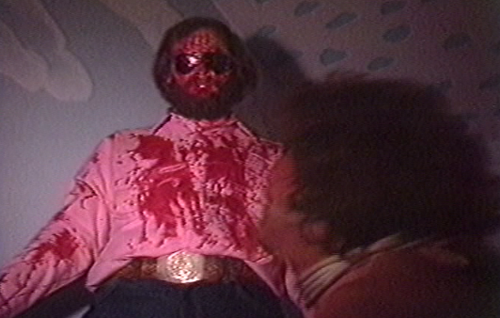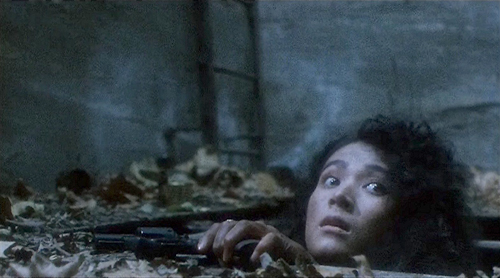
Two years ago in Key West, I was dragged to a Jimmy Buffett walking tour. Because if there’s one thing I dislike more than outdoor physical activity in triple-digit temps, it’s the music of “Uncle Jimmy,” as his fervent followers call him. I can’t tell you much about the tour, except I suspect our host trespassed at least once, possibly made things up on the fly, and carried cheaply laminated photos printed from the internet with zero concern for DPI.
All this to say, I’m not the ideal audience for Murdaritaville, Paul Dale’s horror-spoof tribute to Buffett (made before the trop-rock troubadour’s September 2023 passing, lest ye Parrotheads cry “fowl”). But I am the ideal dead meat for its killer, a half-parrot/half-man in skipper’s cap who turns only non-Buffett fans into his own human buffet. In essence, the murderous monster (a dedicated Carter Simoneaux, Dale’s Killer Kites) is like Dexter for the salt-shaker-and-Hawaiian-shirt crowd.

Buffett references aside, I can’t say I dove in to this birdman movie with the unexpected virtue of ignorance, having seen a couple of Dale’s previous pictures in the same comedic vein, most enjoyably Sewer Gators. Among the 50 minutes before the closing credits, too little amuses this time ’round. I enjoyed a throwaway bit with an opera-singing shark (free spin-off idea: Opera Shark) and Dale’s brief return as arrogant TV news reporter Brock Peterson, seen talking to himself while leaving negative feedback for some Uber/DoorDash worker: “Mohammed? One star. That’s for 9/11.”
The movie’s style of humor often veers between the lanes of Abbott and Costello to Airplane! Much of the latter’s influence accounts for fake credits (example: “Armorer: Alec Baldwin”). These gags fall flat not because they run 10 slow-going minutes, but because they botch the spellings of an unforgivable amount of names: Kevorkian, Streisand, Aykroyd, Midler, Friedkin, Epstein, et al. (Hasn’t poor “Hellen” Keller suffered enough?) That sloppiness is indicative of Murdaritaville’s whole, with the major exception of Taylor Fisher’s design of the parrot man.
I think Murdaritaville would land best as a joke trailer, in which the title serves as the punchline. Perhaps those in Buffett’s cult will find more to dig. —Rod Lott




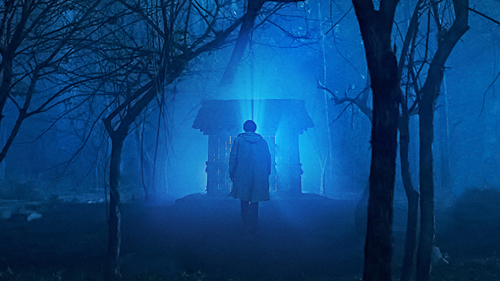
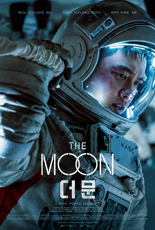
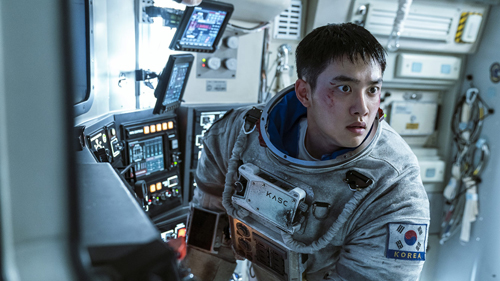

 Beware, lady nurses in the Valley who happen to stand around 5’3″: A serial killer is targeting you. Be on the lookout for a guy who looks like Jim Henson after a visit to Sunglass Hut.
Beware, lady nurses in the Valley who happen to stand around 5’3″: A serial killer is targeting you. Be on the lookout for a guy who looks like Jim Henson after a visit to Sunglass Hut. 